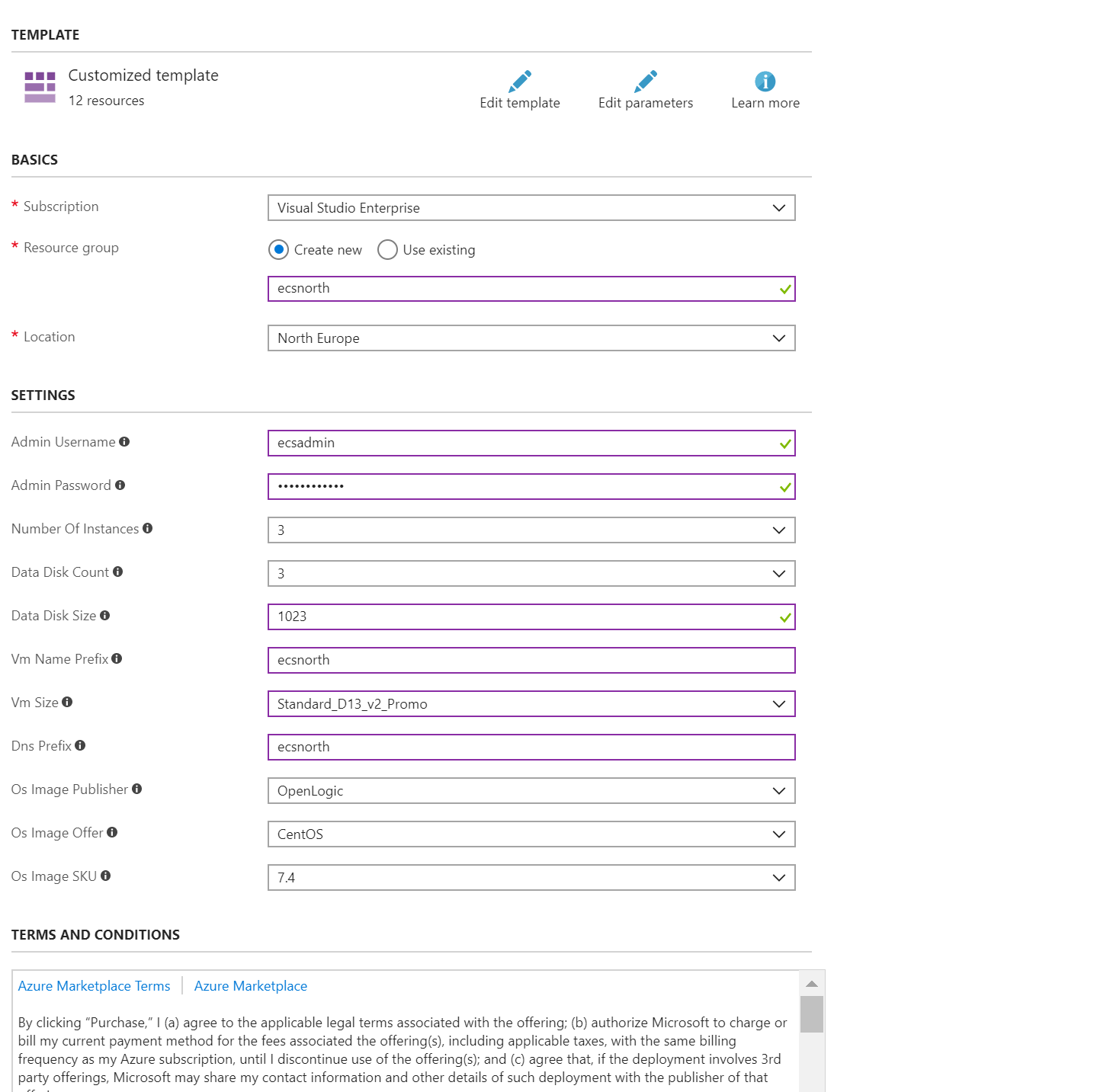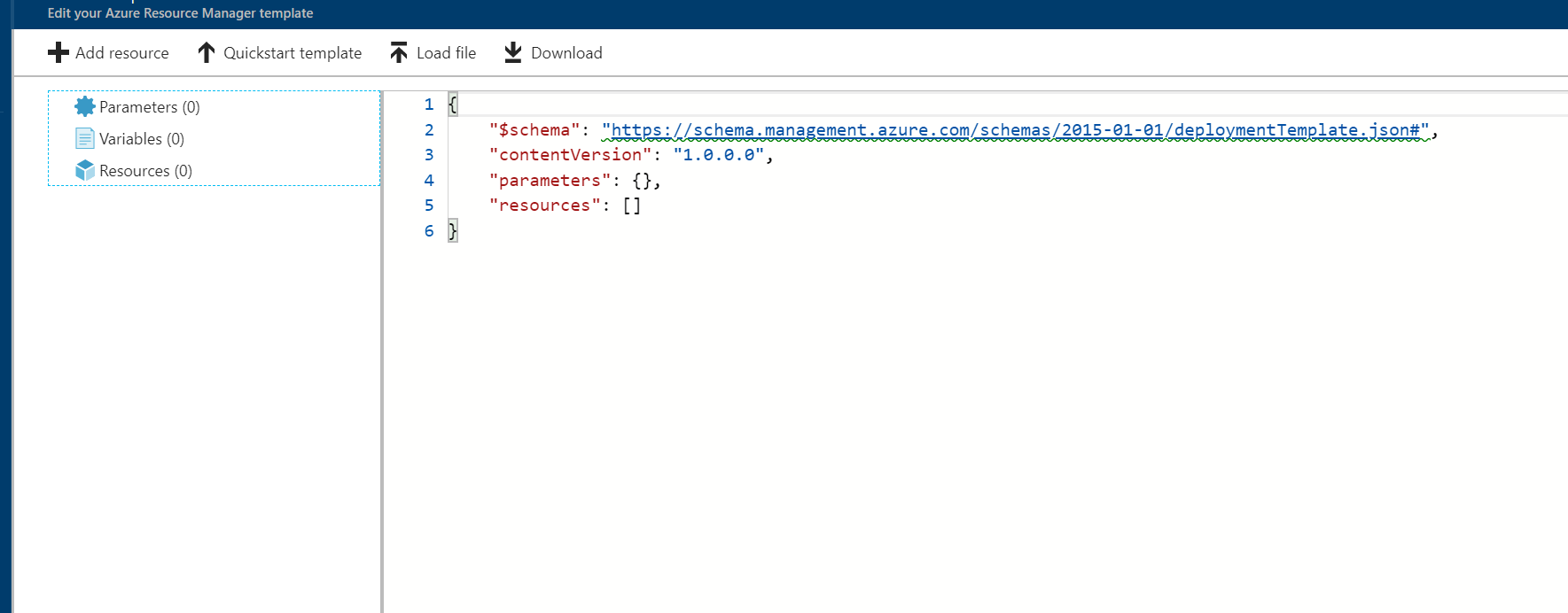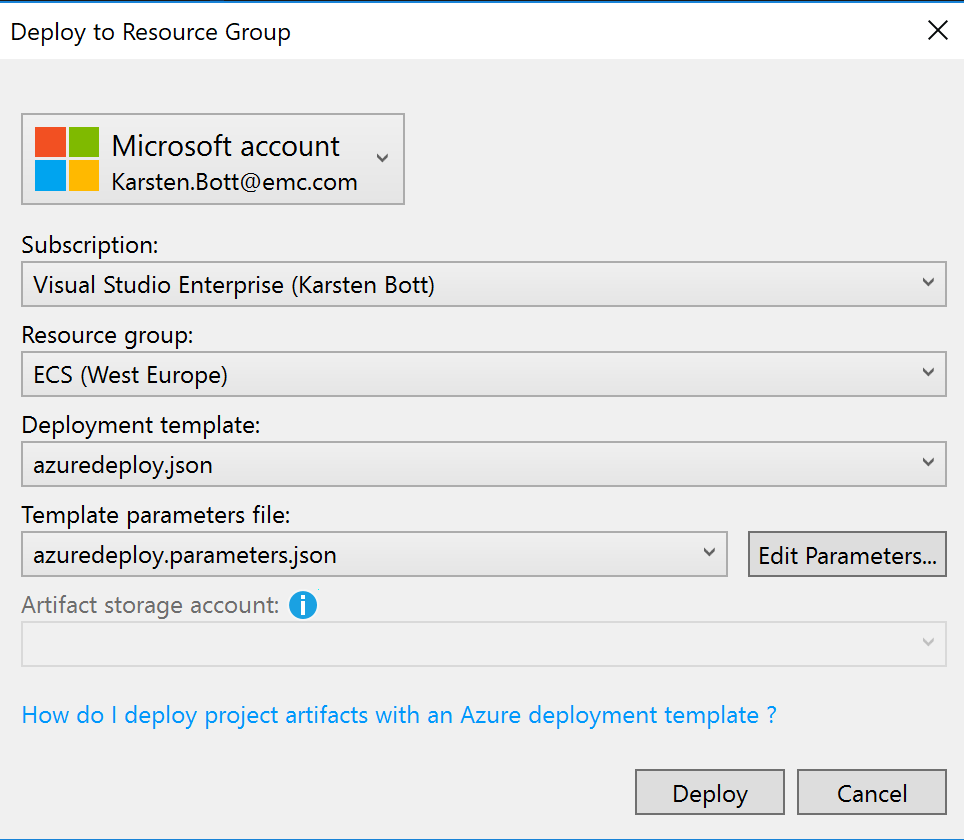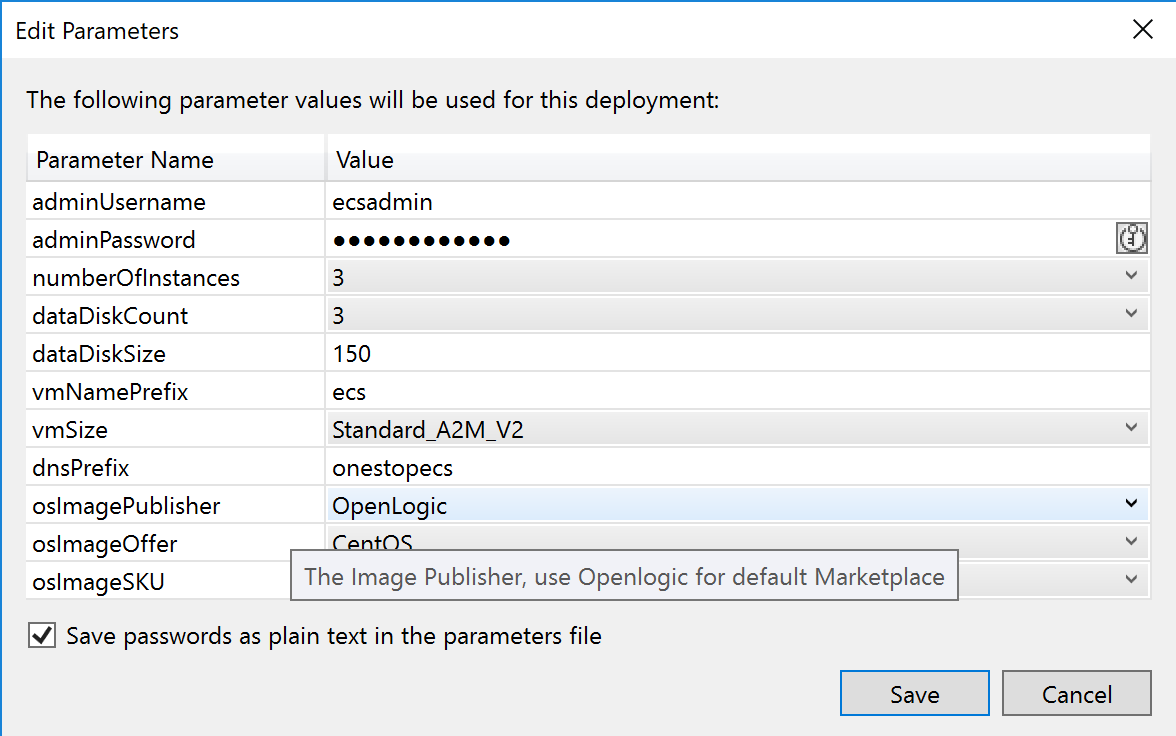* added create linux vm using managed disk and custom image * added create linux vm using managed disk and custom image * renamed port description for ssh * updated readme * quickstart images * bumped compte api back for 1901 compliance * add windows image |
||
|---|---|---|
| .. | ||
| images | ||
| scripts | ||
| README.md | ||
| azuredeploy.json | ||
| azuredeploy.parameters.json | ||
| deploy-azureresourcegroup.ps1 | ||
| metadata.json | ||
README.md
Deploy Multinode DELLEMC ECS Elastic Storage S3 Community Edition in an AzureStack Availabilty Set



Prerequisites
The required VM Types need to have at least 4vCPU and 16GB memory. With the current AzureStrack VM Sizes, this would be 28G Memory per machine, so make sure you ASDK has enough Memory...
To depoloy to an ASDK Admin Tenant, just click on "ASDK Admin Tenant"
To depoloy to an ASDK User Tenant, just click on "Deploy to ASDK"
To deploy this template using the scripts from the root of this repo: (change the folder name below to match the folder name for this sample)
.\Deploy-AzureResourceGroup.ps1 -ResourceGroupLocation 'local' -ArtifactsStagingDirectory '301-availability-set-elastic-storage-ecs'
azure-group-deploy.sh -a '301-availability-set-elastic-storage-ecs' -l local
This template deploys a multinode dellemc ecs community edition. The ecs community edition is a elastic cloud storage solution providing object storage (sr, atoms, cas)
Tags: arm, centos, ecs, ecs community edition
Solution overview and deployed resources
This is an overview of the solution
The following resources are deployed as part of the solution
Storage Accounts
Storage ressources provided per vm
- vm storage account: holds the os copy from image (CentOS) and up to 8 data disks per node
- diagnostic storage account: storage for vm diagnostics
Supported OSimage Publisher / SKU /Versions
the following images are supported:
- CentOS this is based on the RogueWave Centos Image using Publicher OpenLogic, SKU CentOS, Version 7.4
- CentOS-7 this is based on the original Centos CloudImage using Publisher CentOS, SKU Centos-7, Version Centos-7.4 The Centos-7 must be loaded manually or using Azurestack-Kickstart
networkSecurityGroups
Firewall rules for Network
networkLoadbalancer
Public loadbalancer for ECS Nodes
- lbRulesA: Load Balancing rules for ECS Ports 111,2049,9020.9021,9022,9023,9024,9025,10000
- inboundNatRules: ports 220x are forwarded to port 22 on NodeX
OSTCExtensions
Custom Script Extensions for Linux The deployment utilizes the custom script extension
- configurenode: Used on the Node to configure installer Prerequirements, used on nodes 2-N
- install_ecs: the ecs installer, run´s on node 1
Password Change extension the Deployment utilizes the Password change extension for linux
- resetpassword to overcome some issues where cloudinit does not accept password the default password is Subscription#id, example Subscription#8c21cadc-9e41-459e-bf4b-9b5aa2fad938
Deployment steps
deploy to Azure from this site
You can click the "deploy to Azure" button at the beginning of this document or follow the instructions for command line deployment using the scripts in the root of this repo. the parameters section will be the same
from new azure template from azure portal
From the azure Portal, click new and type in template. select the new custom template dialog
once open, click on the upload and load the azuredeploy.json
fill in all parameters to you need and make sure the dns prefix is not used

quickstart template
Also, you can use Visual Studio to deploy the template. If you have installed the ressourcegroup extensions creater a new deployment and select '301-availability-set-elastic-storage-ecs' from the quickstart templates
visual studio example
parameters of resource group
The ressource group deployment will take between 10 and 15 Minutes, depneding on VM Types
once the resource group deployment has finished, the ecs installer will be started from ecs.sh
monitor installation
ssh into the first node (use the external dns name ), port 2201
sudo su
tail -f /root/install.log
 the system will do a reboot after package installation.
the reboot(s) will be controlled by a systemd service ecs-installer.service
the system will do a reboot after package installation.
the reboot(s) will be controlled by a systemd service ecs-installer.service
after the reboot, the ECS ansible installer starts withn step1 and step2
the progress is also logged
sudo su
tail -f /root/install.log
Connect
once the installation has finished step2, you can connect to port 443 of your externa DNS from a webbrowser. the initial user / password is root:ChangeMe
Management
For more information, see DellEMC ECS Community Edition readthedocs
Notes
future improvement´s
- feedback of installation logs to arm
- ubntu based install ( pending verification )
- singlenode from same deployment
- nested template for loadbalancer as copy set






